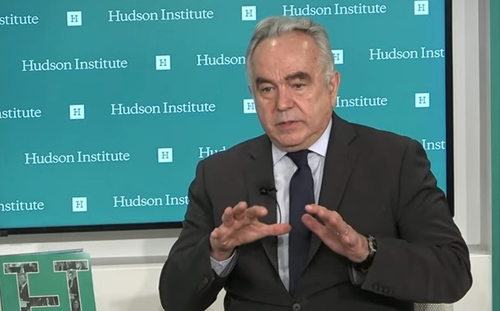Share lending on local stock markets reaches record high
SEOUL, Nov. 24 (Yonhap) -- Securities lending on the South Korean stock markets have reached an all-time high, data showed Monday, a sign that investors aren't expecting any significant gains soon in the local bourse.
The amount of outstanding loans of stocks listed on the benchmark Korea Composite Stock Price Index (KOSPI) and the tech-laden KOSDAQ market came to 50.1 trillion won (US$45.08 billion) as of Friday, topping the 50 trillion-won mark for the first time, according to the data compiled by the Korea Financial Investment Association.
The combined volume of these stocks also touched a record high at 1.79 billion shares, the data showed.
Securities lending is a transaction in which an investor pays a commission to borrow a security for a certain period of time as a means to profit from taking a short position on the stock. The higher the number of these lendings, the higher the number of investors that expect stock prices to decline.
The main bourse has been unable to recover its losses since the KOSPI fell below the psychologically important 2,000-point line earlier in October, with the numbers moving between 1,930 points and 1,960 points this month. Gains for the secondary bourse have also been limited since late last month.
Shares of Samsung Heavy Industries Co., Daewoo Shipbuilding & Marine Engineering Co., and Hanwha Chemical Corp., among others, had the largest number of borrowers in the recent month, according to the data.
Market watchers forecast that stock prices may fall further when borrowers start selling off the shares.
"As the amount of borrowed stocks continued to grow after October, short selling of these securities has also increased, thereby putting a strain on the local stock markets," said Koh Seung-hee, an analyst at SK Securities Co.
Koh, however, said there may not be increased short selling following the record-high securities lending. By the end of the year, the original owners of the stocks are likely to "ask to get their shares back in time to receive year-end dividends or to take back their voting rights for stockholders' meetings," he said.
yjkim8826@yna.co.kr
(END)
-
 S. Korea marks 30th anniv. of Korean Pavilion at Venice Biennale with contemporary art
S. Korea marks 30th anniv. of Korean Pavilion at Venice Biennale with contemporary art -
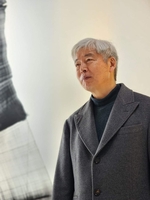 Artist Lee Bae captures ethereal Korean aesthetics at Venice Biennale
Artist Lee Bae captures ethereal Korean aesthetics at Venice Biennale -
 Facebook page unveils photos of BTS member V in counter-terrorism unit gear
Facebook page unveils photos of BTS member V in counter-terrorism unit gear -
 Ateez member Yunho throws first pitch at MLB match between Dodgers, Mets
Ateez member Yunho throws first pitch at MLB match between Dodgers, Mets -
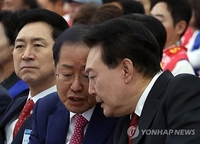 Yoon, Daegu mayor met to discuss post-election matters: sources
Yoon, Daegu mayor met to discuss post-election matters: sources
-
 Artist Lee Bae captures ethereal Korean aesthetics at Venice Biennale
Artist Lee Bae captures ethereal Korean aesthetics at Venice Biennale -
 S. Korea marks 30th anniv. of Korean Pavilion at Venice Biennale with contemporary art
S. Korea marks 30th anniv. of Korean Pavilion at Venice Biennale with contemporary art -
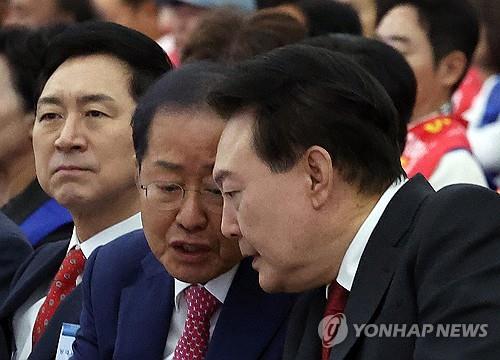 Yoon, Daegu mayor met to discuss post-election matters: sources
Yoon, Daegu mayor met to discuss post-election matters: sources -
 Facebook page unveils photos of BTS member V in counter-terrorism unit gear
Facebook page unveils photos of BTS member V in counter-terrorism unit gear -
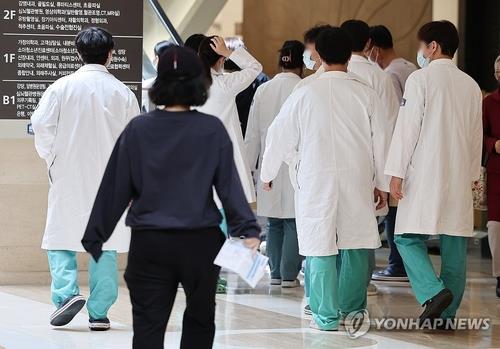 Gov't likely to accept university chiefs' request to lower med school enrollment quota
Gov't likely to accept university chiefs' request to lower med school enrollment quota
-
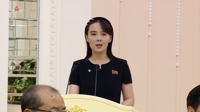 N.K. leader's sister slams joint S. Korea-U.S. military drills
N.K. leader's sister slams joint S. Korea-U.S. military drills -
 (LEAD) N. Korea sends economic delegation to Iran amid suspected military cooperation
(LEAD) N. Korea sends economic delegation to Iran amid suspected military cooperation -
 Author of ADOR's 'internal document' refutes allegations of spinoff plot
Author of ADOR's 'internal document' refutes allegations of spinoff plot -
 Pentagon stresses close consultation with S. Korea after simulated N.K. 'nuclear counterattack' drill
Pentagon stresses close consultation with S. Korea after simulated N.K. 'nuclear counterattack' drill -
 Yoon says N. Korea must not dare challenge S. Korea
Yoon says N. Korea must not dare challenge S. Korea



















